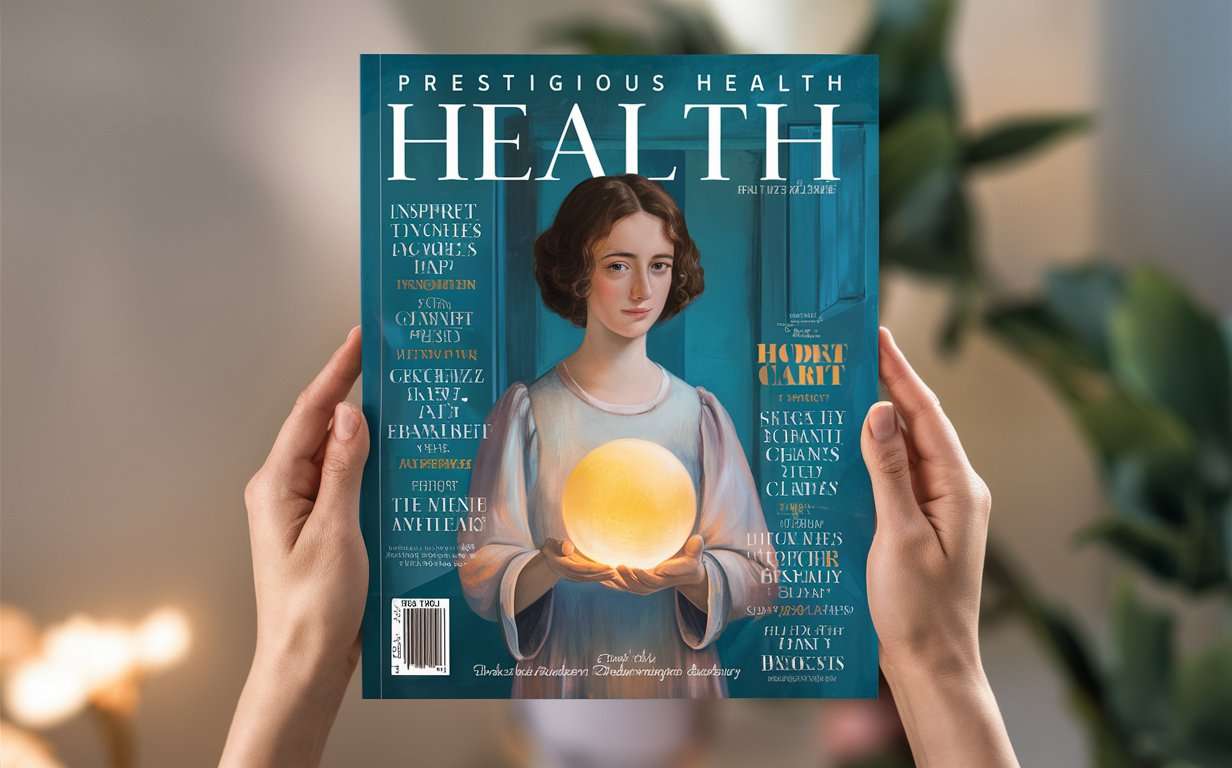Last Updated on July 29, 2024 by Alexander Sennuga
Do you know why awareness of foods to avoid with gestational diabetes is so important?
Gestational diabetes is a condition that affects pregnant women, characterized by high blood sugar levels that can adversely affect both mother and baby. Managing this condition through diet is crucial, as it helps maintain blood sugar levels and ensures a healthy pregnancy.
This post explores key foods to avoid to control gestational diabetes effectively.
Overview of Gestational Diabetes

Gestational diabetes is a type of diabetes that can occur during pregnancy. It happens when a woman’s body can’t make enough insulin to handle the extra sugar in her blood.
This condition usually starts in the middle or late part of pregnancy and goes away after the baby is born. However, it’s important to manage it carefully because it can affect both the mother and the baby.
Women with gestational diabetes need to check their blood sugar often, eat a healthy diet, exercise regularly, and sometimes take medicine. They may also need extra care and more doctor visits during pregnancy. While it can be worrying, most women with gestational diabetes have healthy pregnancies and babies.
After pregnancy, these women have a higher risk of getting type 2 diabetes later in life, so they should keep up with healthy habits and regular check-ups.
Importance of Diet Management for Gestational Diabetes

Managing diet is crucial for women with gestational diabetes. This type of diabetes occurs during pregnancy and can affect both mother and baby. Eating well helps control blood sugar levels, which is key to staying healthy.
A good diet includes a mix of foods like vegetables, fruits, whole grains, and lean proteins. It’s important to eat regular meals and snacks throughout the day. This keeps blood sugar steady and provides energy. Women should also watch portion sizes and limit foods high in sugar. Drinking plenty of water is helpful too.
By following a healthy eating plan, women can reduce risks and have a better pregnancy. It’s always best to work with a doctor or dietitian to create a diet that’s right for each person. With proper care, most women with gestational diabetes have healthy babies and safe pregnancies.
High Sugar Foods
High-sugar foods are those that contain large amounts of added or refined sugars, which can have detrimental effects on health when consumed in excess. These include candies, cookies, cakes, sugary drinks, and even some seemingly healthy options like flavored yogurts and granola bars.
Consuming too many high-sugar foods can lead to a range of issues, such as weight gain, increased risk of type 2 diabetes, and dental problems. The rapid spike in blood sugar levels followed by a crash can also contribute to energy fluctuations, mood swings, and cravings.
To maintain a balanced diet, it’s crucial to be mindful of added sugar content and limit the intake of these high-sugar foods. Instead, opt for naturally sweet fruits, vegetables, and whole grains that provide fiber, vitamins, and minerals without the added sugar. Reading nutrition labels and being aware of hidden sugars in processed foods can help make healthier choices.
Moderation and a focus on nutrient-dense options are key to managing sugar consumption.
Specific examples of the high-sugar foods to avoid are these:
Sodadic Beverages
Soda and other sugary drinks are major culprits in spiking blood sugar levels. They provide a large amount of sugar in a form that the body rapidly absorbs. They constitute one of the foods to avoid with gestational diabetes.
Sweets and Desserts
Cakes, cookies, ice cream, and other desserts are loaded with sugars and fats, which can lead to quick increases in blood glucose levels.
Cereals with Added Sugar
Despite being marketed as healthy, many breakfast cereals contain high levels of added sugars. Opting for cereals with natural grains and no added sugars is better.
Refined Carbohydrates
Refined carbohydrates are processed foods where most of the natural fiber and nutrients have been stripped away, often resulting in products with a longer shelf life but reduced nutritional value. Common examples include white bread, pasta, pastries, and sugary cereals. Because they are quickly digested and absorbed, refined carbs can cause rapid spikes in blood glucose levels, leading to energy crashes and increased hunger soon after consumption.
Frequent intake of refined carbohydrates has been linked to various health issues, such as obesity, type 2 diabetes, and cardiovascular diseases. This is due to the high glycemic index and lack of essential nutrients in these foods.
For a healthier diet, it is advisable to choose whole grains and unprocessed foods that retain their natural fiber and nutrients. Whole grains like brown rice, quinoa, and whole wheat products help to stabilize blood sugar levels, provide longer-lasting energy, and support overall digestive health. Making mindful choices can significantly enhance long-term well-being.
Some refined carbohydrates that constitute foods to avoid with gestational diabetes :
White Bread
Bread made from white flour has a high glycemic index and can rapidly elevate blood glucose levels, much like sugar.
Pasta
Like white bread, pasta made from refined flour can cause significant blood sugar spikes.
White Rice
A staple in many diets, white rice has minimal fiber and a high glycemic index, contributing to increased blood glucose levels.
Fatty Foods
Fatty foods, often misunderstood, play a significant role in a balanced diet. These foods include items high in fat content, such as avocados, nuts, seeds, oily fish, and certain dairy products. The type of fat consumed is crucial; unsaturated fats found in olive oil, nuts, and fish are beneficial for heart health, helping to lower bad cholesterol levels and providing essential fatty acids.
Conversely, saturated fats and trans fats, present in red meat, butter, and processed snacks, can increase the risk of heart disease when consumed in excess. Moderation and mindful choices are key. Fatty foods also contribute to satiety, aiding in weight management by keeping hunger at bay.
Furthermore, fats are essential for the absorption of fat-soluble vitamins A, D, E, and K, and they provide a significant source of energy. Incorporating a variety of fats from healthy sources into one’s diet can enhance overall health and well-being.
Examples of bad fatty foods not recommended for gestational diabetes are the following:
Fried Foods
High in unhealthy fats and carbohydrates, fried foods like french fries and fried chicken can contribute to weight gain and increased blood sugar levels.
High-Fat Meats
Processed meats or cuts high in fat can exacerbate insulin resistance, making blood sugar harder to control.
Full-Fat Dairy Products
Products like whole milk, cream, and cheese can contain significant amounts of fat and calories, impacting glucose management.
Processed Snacks
Processed snacks are usually high in carbohydrates, fats, and sugars, none of which are beneficial for blood sugar control.
Chips
Potato chips and similar snacks not only contain refined carbohydrates but also unhealthy fats, contributing to poor dietary balance.
Baked Goods
Pastries, cookies, and cakes often contain both high amounts of sugar and unhealthy fats.
Ready Meals
Prepackaged meals are often high in sodium, fats, and sugars, making them an unwise choice for managing gestational diabetes.
High Glycemic Fruits
High glycemic fruits are those that have a glycemic index (GI) score of 55 or above, indicating they can cause a rapid spike in blood sugar levels. The glycemic index is a measure of how quickly a food raises blood glucose levels after consumption. Some common high-glycemic fruits include watermelon, pineapple, and ripe bananas.
While these fruits are naturally sweet and packed with vitamins, minerals, and antioxidants, their high GI levels mean they should be consumed in moderation, especially by individuals managing conditions such as diabetes or insulin resistance. The quick absorption of sugars can lead to sharp increases in blood sugar followed by rapid declines, which may affect energy levels and hunger.
Despite their high GI, these fruits offer significant health benefits when eaten in appropriate portions. Watermelon provides hydration and vitamin C, pineapple is rich in bromelain and vitamin C, and bananas offer potassium and B6. Balancing high-GI fruits with low-GI foods and incorporating fiber can help mitigate blood sugar spikes.
Examples of high-glycemic fruits are the following:
Watermelon
Though refreshing, watermelon has a high glycemic index and can lead to quick increases in blood sugar levels.
Pineapple
Pineapple is another fruit that, while rich in vitamins, possesses a high sugar content that can affect blood glucose levels.
Overripe Bananas
Riper bananas contain more sugar compared to their less ripe counterparts, making them less ideal for sugar management.
Sugary Drinks
Sugary drinks have become a common part of many people’s diets, but they can be harmful to our health.
These beverages, like sodas, sports drinks, and sweetened teas, are packed with added sugars that offer little to no nutritional value. When we consume too many sugary drinks, we take in extra calories that can lead to weight gain and obesity. Over time, this can increase the risk of developing serious health problems such as diabetes, heart disease, and tooth decay.
Many health experts recommend cutting back on sugary drinks and choosing healthier options like water, unsweetened tea, or low-fat milk instead. By making small changes in our drink choices, we can improve our overall health and well-being.
Some of the sugary drinks as foods to avoid with gestational diabetes are listed below:
Fruit Juices
Even 100% fruit juices can cause blood sugar levels to rise due to their high fructose content.
Energy Drinks
High in caffeine and sugars, energy drinks can lead to sharp spikes in blood glucose.
Flavoured kinds of milk
Chocolate or strawberry milk contains added sugars on top of lactose, making it a poor choice for managing gestational diabetes.
Condiments and Sauces
Condiments and sauces play a crucial role in enhancing the flavor profiles of dishes and elevating culinary experiences. These flavorful additions come in a wide variety, ranging from tangy mustards and creamy mayonnaises to spicy sriracha and savory soy sauce. Condiments can be used to complement and balance the tastes of a dish, adding depth and complexity.
Sauces, on the other hand, are often used to coat, dip, or marinate foods, imparting moisture and flavor. From classic tomato-based marinara to rich and velvety hollandaise, sauces can transform a simple meal into a gourmet delight.
While condiments and sauces can enhance the taste of dishes, it is essential to use them in moderation due to potentially high levels of salt, sugar, and preservatives. Opting for homemade versions or choosing low-sodium options can help control intake while still enjoying the delicious flavors they bring to the table.
Examples of condiments and sauces are the following:
Ketchup
High in sugars and syrups, ketchup can quietly add a significant amount of sugar to a seemingly healthy meal.
Barbecue Sauce
Similar to ketchup, barbecue sauce is usually laden with sugar, which can disrupt blood sugar control.
Salad Dressings
Many commercial dressings are high in sugar and unhealthy fats. Opting for light or homemade dressings is a better alternative.
Alternative Food Choices
Rather than indulging in foods to avoid with gestational diabetes, there are better food options to embrace. Below are some of them:
Whole Grains
Switch white bread and rice for whole-grain versions to help manage post-meal blood sugar peaks.
Lean Protein
Incorporating lean proteins such as chicken breast, fish, and legumes can stabilize blood sugar levels.
Low-Glycemic Fruits
Fruits like:
- berries,
- apples, and
- pears
have lower sugar content and can be part of a balanced diet.
Conclusion

Recognizing and avoiding foods that exacerbate gestational diabetes is crucial for the health of both mother and baby. By making informed dietary choices, it is possible to be successful in foods to avoid with gestational diabetes.
Embracing a diet rich in whole grains, lean proteins, and low-glycemic fruits is not only safe but also beneficial.
Let’s aim for a healthy pregnancy through thoughtful eating habits.
Always consult with healthcare professionals to create a tailored diet plan that suits individual needs and conditions.








